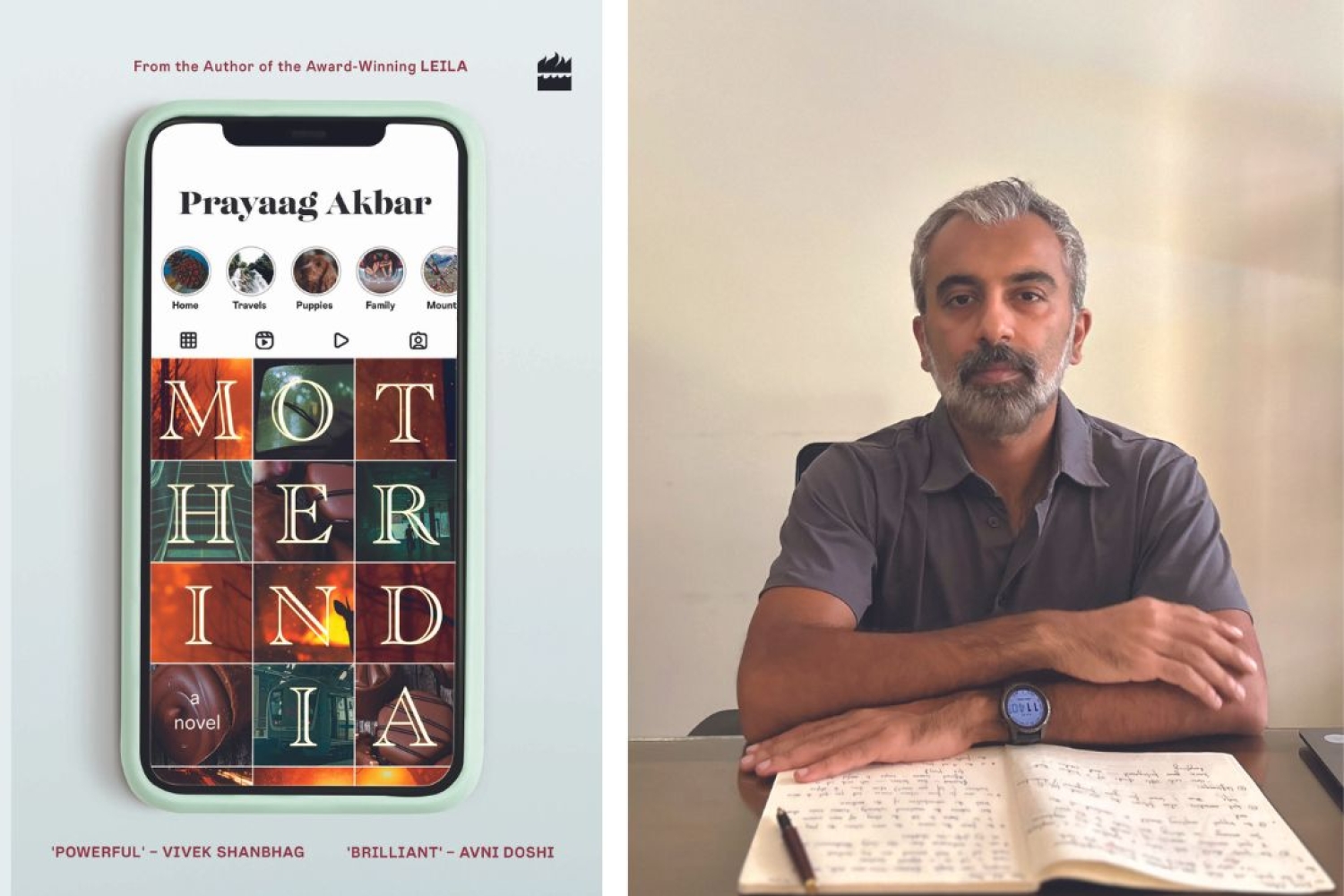

In the ever-evolving landscape of literature, tackling contemporary issues through fiction offers a compelling lens into the human experience. Prayaag Akbar has done just that with his latest novel, Mother India, diving deep into the lives of Mayank and Nisha—two young adults navigating the intricacies of social media and its political implications. In an insightful conversation, Akbar sheds light on his creative process, the thematic depth of their novel, and the challenges of reflecting our present reality.
How did you get an interest in exploring the lives of two people negotiating the present world of social media and its politics?
That was my starting point. I always knew the story was about Mayank and Nisha, two young people fresh out of college. Social media emerged as an important theme naturally, as a consequence of how much time we spend online, their generation perhaps most of all. That generation has grown up with social media, but not everyone embraces it equally, and I have tried to show that in the novel. It is a fascinating sphere for all sorts of reasons.
Your previous novel, Leila, was set in a dystopian background, but this one is set in our current reality. What were the challenges of making something that is not entirely near to our reality and something that reflects our present?
They're very different novels, but in some senses the work of the writer remains the same: we have to render a believable world, we have to populate it with interesting characters, we have to create a story that grips and entertains. Speculative fiction such as Leila requires fantastical thinking, but it also requires a lot of (for want of a better word) logistical thinking. You have to figure out the nuts and bolts of the world you've created. If you want the fiction to sustain, for the reader to remain invested in your world, you can't break the rules you've set up yourself. I didn't have to think exactly like that with Mother India, but what I learned, writing draft after draft, was that poor writing can break the fiction for your reader just as easily. You have to be true to the possibilities your characters could have.
How does the novel utilize the symbol of the mother? How do these representations reflect the modern expectations of 'good women' in today’s society?
I'm not sure what the modern expectation of a 'good woman' is. I do touch upon it in the novel, through the character of Bhavna, perhaps? The symbol of the 'mother' was something I wanted to interrogate. In our culture, as in most cultures, we accord mothers a revered status. But what is our lived experience of mothers? Are they uniformly angelic? There are a number of mothers in the novel, each with their own impacts on their offspring. I am interested in the Mother India image not only as an expression of our nationalism but also in the way that it idealizes the mother.
Since the novel is based on our current times, what was the research process like?
A lot of deep-sea diving to the murkiest depths of the YouTube ocean! A lot of time spent online. Even more spent offline, talking to people of that age, people directly or indirectly involved in these worlds.
The novel focuses on the confusing aspects of our histories and how they are often fictionalized for one's own benefit. What role did you want history to take on in this novel?
In the last forty or fifty years, as non-dominant voices have emerged with respect to gender, race, religion, and caste, many people have had to re-evaluate the versions of history that were once taught with certainty. Yet the internet and social media have engendered a form of historical revisionism that is very different from that and far more dangerous. In this new proliferation of data, we are losing our ability to tell apart rigorous historical writing from screeds and harangues and tirades. In the novel, my characters struggle with just this.
What do you hope for readers to take away from this novel?
I can only hope that each reader takes away something different, some realization uniquely their own. That would make me feel like I've written a good novel.
Words Paridhi Badgotri
Date 05.08.2024